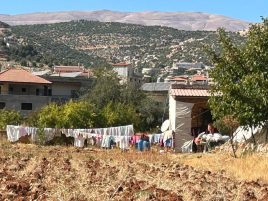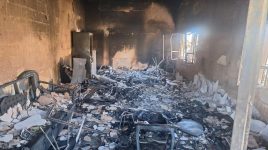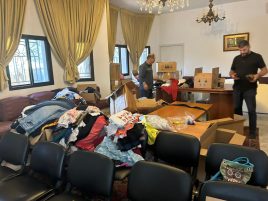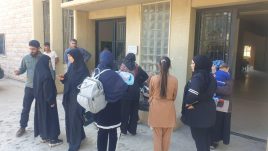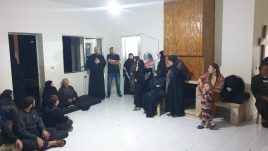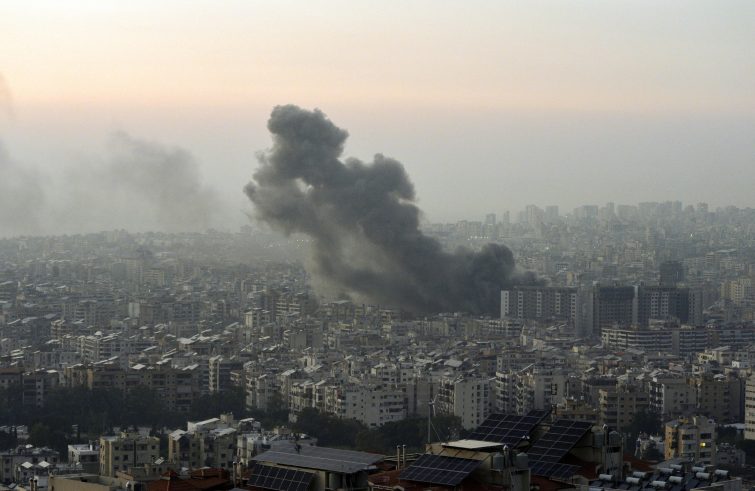
“The situation remains serious. As the destruction of homes and buildings increases, so too does the number of internally displaced persons, along with their needs.” These are the words of Monsignor Hanna Rahmé, Maronite Catholic Bishop of Baalbek-Deir El-Ahmar in eastern Lebanon, commenting on the ongoing war between Hezbollah and Israel that has flared up in recent weeks in this area, not far from the archaeological sites designated as a UNESCO World Heritage Site. Israeli air strikes hit around 20 targets in the area and elsewhere north of the Litani River overnight, killing around 60 “Hezbollah agents”. The Israeli army considers the area to be a stronghold of the Party of God.
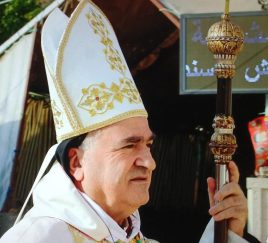
The diocese is vast (27% of the country’s total area) and home to some 450,000 people, mostly Shia Muslims. The region was the target of several air strikes after the Israeli military issued a series of evacuation warnings for the area. Lebanese press reports put the death toll in the dozens. In response, Hezbollah continued to fire rockets into northern Israel, many of which were intercepted and shot down by Israel’s air defence system.
Before 1975. “Before the 1975 war,” the archbishop recalls, “the dominant religious demographics of Baalbek were Christian and Sunni. In the course of the aforementioned conflict, the majority of Christians evacuated the area, while Muslim Sunnis remained, only to leave soon after because of Shia sectarian violence. Baalbek’s population is now predominantly Shia Muslim. That is why Israel is bombing our region, where, let us not forget, there are several mixed Sunni and Christian villages. Hezbollah has set up its weapons depots near these villages, which have become targets of air strikes. Churches and other places of worship were also hit. Among these was our Catholic school in Baalbek, recently rebuilt by the Italian Bishops’ Conference. It is legitimate to ask why they placed so many weapons depots near Christian neighbourhoods.”
People must not be abandoned. “There are people suffering and dying because of the weapons,” the archbishop told SIR. “A family of four, all internally displaced, had taken refuge near the episcope but returned home to try to salvage what was left, only to be killed in an air strike. The UN has respect for human rights as one of its core values, but I have a question:
“Where is the UN in Palestine and Lebanon?”
This question will inevitably remain unanswered, at least for the time being. “Now is the time to help the displaced and the families who have lost everything,” says bishop Rahmé, who provided some figures on this emergency. “We set up reception centres in the area, particularly in Deir El-Ahmar. Christians and Muslims in mixed villages have been driven from their homes. The houses of Christian families were destroyed by air strikes because they were adjacent to the homes of Hezbollah members, where weapon caches had been stored. Some 2,500 people found shelter in six school buildings, but the majority of the displaced, some 9,000 people, were sheltered in Christian villages. In particular, churches, monasteries and the private homes of our faithful opened their doors to shelter all those in need, regardless of their religious affiliation. Many Muslims were touched by this expression of Christian solidarity. People should never be abandoned. Many still have nowhere to go”.
- (Foto arcidiocesi Baalbek)
- (Foto arcidiocesi Baalbek)
- (Foto arcidiocesi Baalbek)
- (Foto arcidiocesi Baalbek)
- (Foto arcidiocesi Baalbek)
Young people at the forefront… of solidarity. Hundreds of people, including scouts, Caritas volunteers, people of good will from various movements and church organisations were the first to came forward to help the displaced and the needy”, remarks the archbishop. “We distributed hundreds of food baskets and other supplies to Christian families who were hosting 3 or 4 Muslim families in their homes. In this way we helped everyone. The young Caritas workers also set up a soup kitchen to provide meals for the displaced people housed in facilities made available by the state.” “The Lebanese people,” continues Monsignor Rahmé, “have different political views – many Christians want the war to end through dialogue and not with weapons, as the supporters of Hezbollah would prefer – but in the face of the emergency caused by the Israeli bombs, the country has shown unity and solidarity.”
For us Christians, this means putting into practice the teachings of Jesus: “I was hungry and you gave me something to eat, I was thirsty and you gave me something to drink, I was a stranger and you invited me in, I needed clothes and you clothed me.'” With deep faith, Christians have turned these words into action. The answer to poverty is to be found in a formidable Christian spirit”.
Lack of political and diplomatic efforts. “While the people are responding, the national and international political world remains conspicuously absent. Hezbollah has dragged us into a war in the midst of a crisis afflicting our country – Msgr. Rahmé points out – when in fact what was needed was the election of a new President of the Republic and the appointment of reliable and prepared politicians capable of governing the country. Lebanon is surrounded by weapons. The United States, the European Union, the United Nations and France in particular lack the strength and the ability to broker an agreement between the warring parties for the benefit of the population. “I am convinced,” the archbishop denounces, “that one of the reasons for this situation is the widespread corruption of many of our politicians who plundered the wealth of the people, plunging our country into a serious social, economic, political and financial crisis.
There can be no agreements or negotiations with people who are inconsistent and do not have Lebanon’s fate at heart.
Lebanon will be saved through the disarmament of all concerned parties, including the Palestinian refugee camps, facilitating the return of Syrian refugees to their homeland, restoring the rule of law, forcing the entire present political establishment into retirement, and making room for figures who will be committed to the country and able to bring this country back to life,” he concluded.

